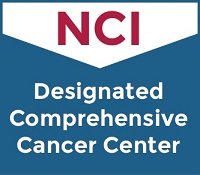Soft Tissue Sarcoma
Soft tissue sarcoma is an uncommon form of cancer that affects the tissue that connects, supports or surrounds other tissue, such as muscles, tendons, fat, blood vessels and nerves.
Each year about 12,000 people in the United States are diagnosed with adult soft tissue sarcomas, as compared to more than 250,000 cases of invasive breast cancer annually.
Soft tissue sarcomas are more common in children than adults but still very rare. About 15 percent of cancers in children are soft tissue sarcoma, but pediatric cancer only accounts for 1 percent of all cancer cases.
Because it is so rare, it is important to see a specialist who focuses on its treatment.
At University of Maryland Greenebaum Comprehensive Cancer Center (UMGCCC), our orthopedic oncology surgeon, Vincent Ng, MD, specializes in treating this rare type of cancer, as well as bone cancer, in adults and children. He works with a multidisciplinary team of cancer experts to ensure you get the best care possible.
Our radiation oncology department works in partnership with the Maryland Proton Center, which offers a highly precise form of radiation therapy that increases the radiation dose to the tumor while decreasing dose to healthy tissue. Together they gives our soft tissue sarcoma patients access to the most advanced radiation therapies.
Soft Tissue Sarcoma Types
Although soft tissue sarcomas are rare, there are more than 50 different types that can develop almost anywhere in the body. They include:
Liposarcoma
One of the most common soft tissue sarcomas, a liposarcoma is a tumor in fat tissue. It can develop anywhere but it is most often seen in the thigh, legs, knee or abdomen.
Leiomyosarcoma
These tumors begin in the smooth muscle tissue often in the abdomen but can start in the arms, legs or uterus.
Rhabdomyosarcomas
More common in children, these tumors usually develop in the voluntary (the ones you control) but they are also seen in hollow organs such as the bladder or reproductive organs.
Synovial Sarcoma
Usually developing in people between the ages of 15 and 40, synovial sarcomas form near large joints like the knee.
Symptoms
Any lump, bump or mass in your hands, arms, pelvis, legs or feet could be a soft tissue sarcoma. Soft tissue sarcomas can be big or small, hard or soft, quick or slow growing.
They are usually not painful until they become large enough to press on organs, nerves, muscles or blood vessels. Symptoms will vary based on the location of the sarcoma.
Diagnosis
At University of Maryland Greenebaum Comprehensive Cancer Center, a pathologist (a doctor specializing in cancer diagnosis) will examine a sample of your lump tissue under a microscope. The pathologist can determine if it is cancerous and the tumor's stage and grade.
We may examine samples from your lymph nodes and other areas to determine if the cancer has spread. Additionally, imaging tests that can determine if the cancer has spread include:
- CT scan, which can measure tumor size and location
- MRI, a noninvasive imaging test that can provide detailed pictures of internal organs and tissues
- PET/CT scan which uses trace amounts of radioactive material to detect cancer cells
Soft tissue sarcoma can resemble other types of noncancerous growths, such as:
- Lipoma, a fatty tumor
- Desmoid tumor, which is a benign tumor on connective tissue
- Cysts
- Hemangiomas
- Vascular malformations
Tell your doctor about any unexplained lumps or growths. A biopsy, or tissue examination, will determine if you have a soft tissue sarcoma or a benign growth, which, in some cases, may need treatment as well.
Soft Tissue Sarcoma Treatment
Surgery to remove the sarcoma tissue is the most common treatment. And in some cases, it may be the only treatment.
Radiation therapies, including proton therapy, a highly precise form of radiation, or chemotherapy, which uses medication to stop cancer growth, may also be recommended.
To ensure you have the best possible outcome from your treatment, our cancer specialists will discuss your case at our weekly multidisciplinary tumor board. This panel of experts in different medical specialties collaborates to develop an individualized course of care that best suits your needs.
Make an Appointment
To schedule an appointment with Vincent Ng, MD, our soft tissue sarcoma expert, call 410-448-6400. For more information about UMGCCC, call 410-328-7904.
Clinical Trials and Orthopedic Oncology Education
As a leader in this field, our specialists engage in research and support other's research through education and fundraising efforts. Learn more about our orthopedic oncology program.


